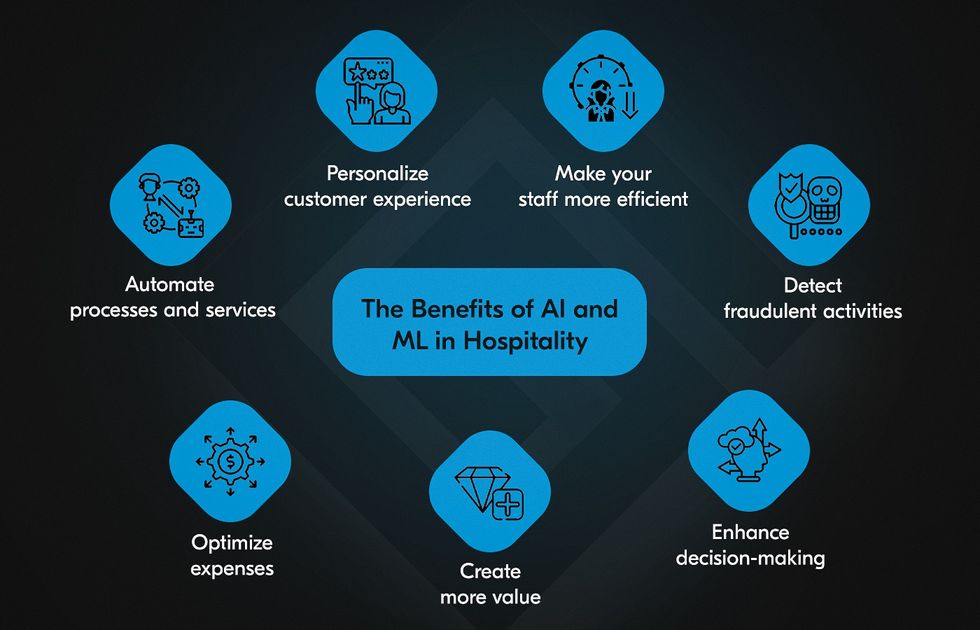Digital Transformation: Key Trends Shaping Vietnam's Hospitality in 2025
Dive into tech innovations like AI personalization boosting RevPAR by 17%, and how businesses can leverage them for operational excellence.
INSIGHTS
BDP+Partners
9/30/20255 min read
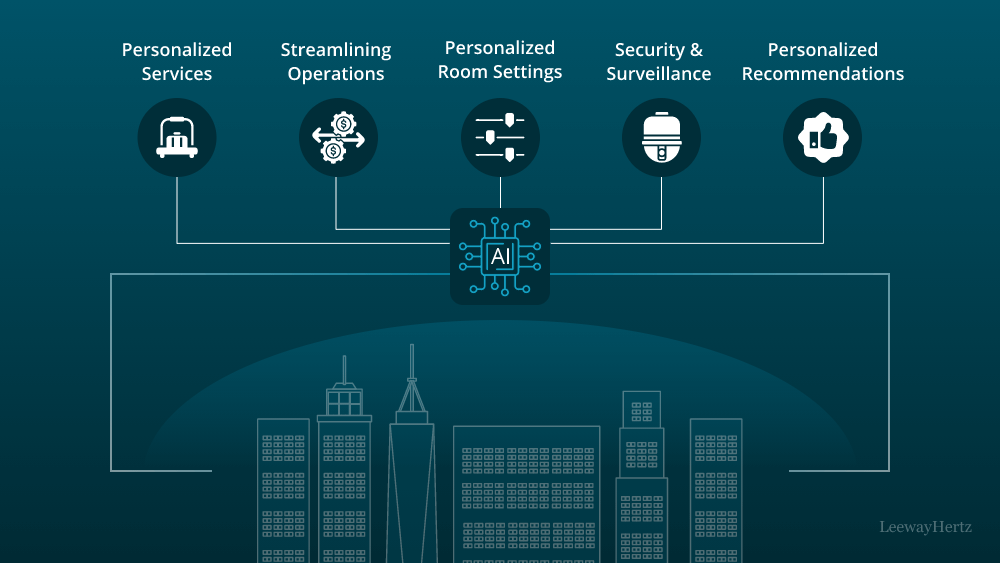

At BDP+Partners, we empower hospitality businesses with cutting-edge solutions for operational excellence. As Vietnam's tourism rebounds, digital transformation is pivotal, enhancing guest experiences and revenue streams. This in-depth exploration covers the latest trends, technologies, case studies, challenges, and forecasts for 2025, providing a roadmap for industry leaders.
In 2025, Vietnam's hospitality sector is embracing AI, facial recognition, and service robots to streamline operations. The market is projected to grow from USD 5.88 billion in 2025 to USD 11.29 billion by 2030, at a 7.25% CAGR, driven by economic development, rising tourism inflows, and a push towards smart ecosystems. Global interest in Vietnam's tourism surged 30-45% YoY in January 2025, fueled by digital marketing campaigns and social media partnerships that highlight the country's diverse offerings, from bustling urban centers to serene beaches.
Events like HorecFex 2025 in Danang showcased innovations worth over 42 billion VND, including AI personalization, blockchain for secure bookings, and immersive tech like AR/VR for virtual tours. Hotel performance has surged, with international arrivals reaching 1.68 million in August 2025, up 16.5% YoY, contributing to a vibrant sector that outperformed regional peers with a 17% RevPAR growth in H1 2025. This growth is underpinned by Vietnam's digital economy, expected to reach $45 billion by 2025, facilitating widespread tech adoption in hospitality.
The tourism market as a whole is set to expand from US$25.7 billion in 2025 to US$79.6 billion by 2035, at a 12.1% CAGR, with digital tools playing a central role in reimagining experiences for both domestic and international visitors. Domestically, over 110 million local trips were recorded in 2024, with projections climbing to 130 million in 2025, supported by mobile apps and online platforms that make travel more accessible. Key players are investing in cloud-based systems and data analytics to optimize operations, reflecting a broader shift towards sustainability and personalization in a post-pandemic world.
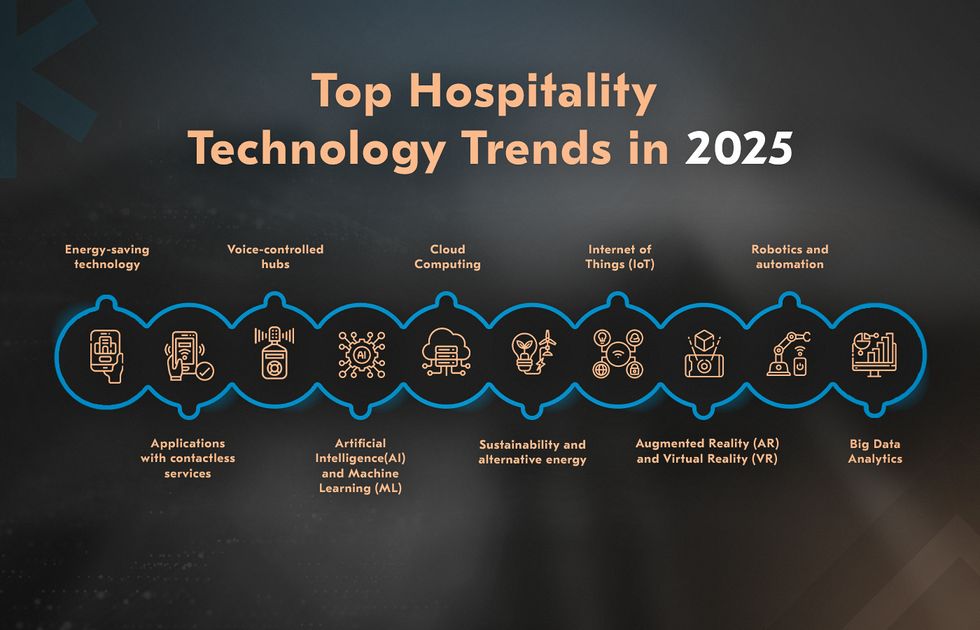

Key Trends and Technologies Driving Change
AI and big data are reshaping hospitality operations, from predictive maintenance to analyzing guest preferences for tailored services. For instance, AI-driven personalization boosts RevPAR by 17% through targeted recommendations, with 66% of businesses using AI for customer communication and engagement. In Vietnam, hotels like those in The Anam Group have integrated AI to provide accurate, comprehensive information in Vietnamese, enhancing traditional hospitality with modern efficiency.
Service robots are another highlight, handling tasks like check-ins and room service, as showcased at HorecFex 2025. These technologies cut operational costs by ~10% through automation and multilingual chatbots, while demand forecasting improves inventory management. Augmented Reality (AR) and Virtual Reality (VR) are gaining traction for immersive experiences, such as virtual site tours that allow potential guests to explore destinations remotely, aligning with global trends where AI takes the lead in cutting costs and enhancing efficiency.
Blockchain ensures secure transactions, particularly in medical tourism, combining online bookings with teleconsultations. Sustainability integrates with digital tools, like energy-efficient IoT systems in smart hotels, reducing waste and appealing to eco-conscious travelers. The rise of hybrid accommodation models, blending traditional stays with tech-enhanced features, defines 2025's trends.
Voice-controlled hubs and contactless applications further streamline guest interactions, from check-ins via facial recognition to app-based room controls. In urban hubs like Ho Chi Minh City and Hanoi, these innovations are transforming mid-to-high-end hotels, with major chains adopting AI to personalize stays based on past behaviors and preferences.
Spotlight on Industry Events and Collaborations
Events are catalysts for innovation. The 8th Hospitality Vietnam Conference (HVC2025) on April 15-16 at Holiday Inn & Suites Saigon Airport brought together over 500 leaders to discuss investment, design, and tech integration for sustainable growth. Themes included revenue evolution and navigating uncertainties, with a focus on AI's role in enhancing service quality.
HorecFex 2025, held August 26-27 in Danang, featured cutting-edge tech like holograms and AI for personalized services, fostering collaborations between local and international firms. The Travel Massive Asia Conference 2025, co-hosted with HorecFex, emphasized digital tools for tourism, drawing global experts to share insights on blockchain and big data.
Other notable gatherings include IT Gathering 2025 in Ninh Binh, focusing on tech for hotels and resorts, and WeHub's Meet the Experts conference, connecting investors with developers for hospitality advancements. These events underscore Vietnam's commitment to digital transformation, with projections for increased FDI in tech-driven projects.
Case Studies: Real-World Implementations in Vietnam
Vinpearl resorts exemplify success, using AI for personalized guest experiences that boost satisfaction by 20%, integrating chatbots for multilingual support and predictive analytics for occupancy optimization. The Anam Group's AI adoption delivers "good ol' fashioned Vietnamese hospitality" through accurate information and efficient operations, reducing staff workload while maintaining cultural authenticity.
In Ho Chi Minh City, hotels leverage AI for demand forecasting, cutting costs and improving efficiency amid rising visitor numbers. Furama Resort's exploration of AI and holograms for trend-leading services highlights how tech optimizes customer journeys from booking to checkout. These cases demonstrate AI's potential to transform Vietnam's industry, with tools like teleconsultation in medical tourism enhancing global competitiveness.
NVIDIA's AI Day in Ho Chi Minh City on September 23, 2025, at Sheraton Saigon Grand Opera Hotel, gathered over 700 attendees to discuss AI's economic impact, signaling broader adoption in hospitality.
Challenges and Solutions in Adoption
Despite progress, challenges persist. High implementation costs and skill gaps hinder smaller operators, but government initiatives like digital training programs and incentives for tech investments are bridging these. Ethical AI use is crucial, balancing automation with human elements to avoid job displacement—managers must embrace AI to enhance, not replace, roles.
Data privacy concerns arise with increased digitalization, necessitating robust cybersecurity. Solutions include partnerships with tech firms for compliant systems and upskilling programs to build a tech-savvy workforce. Resistance to change is addressed through pilot projects demonstrating ROI, such as AI's 10% cost reductions.
Infrastructure upgrades, like new airports and digital booking systems, make Vietnam more accessible, but rural areas lag—targeted investments are key.
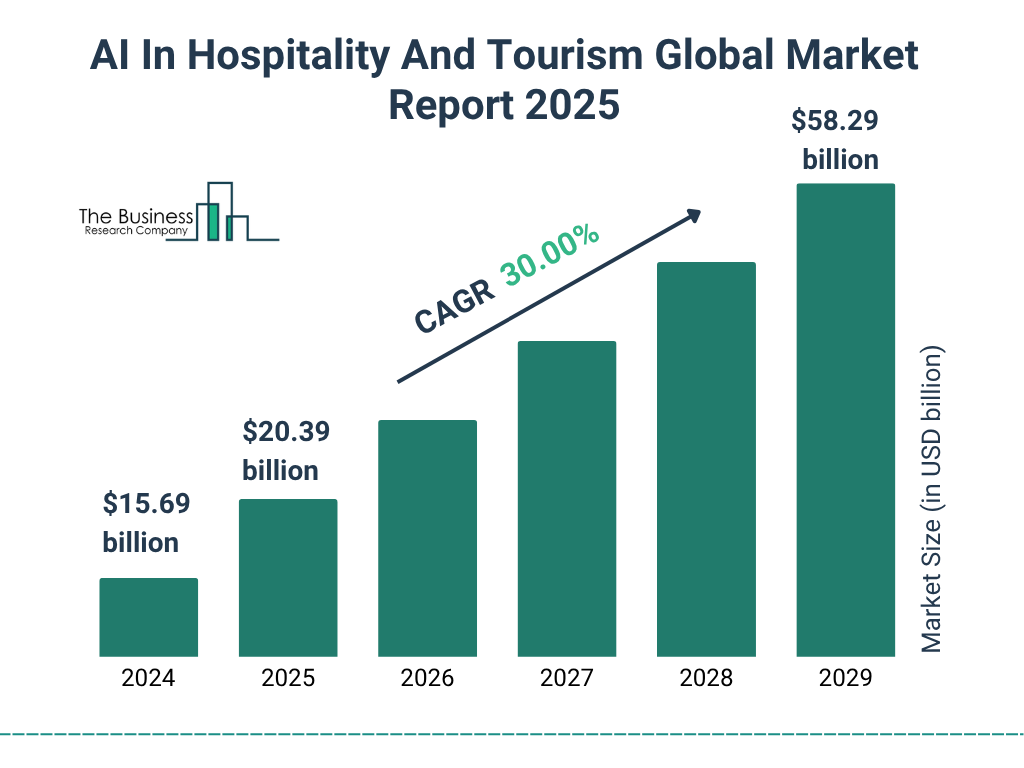

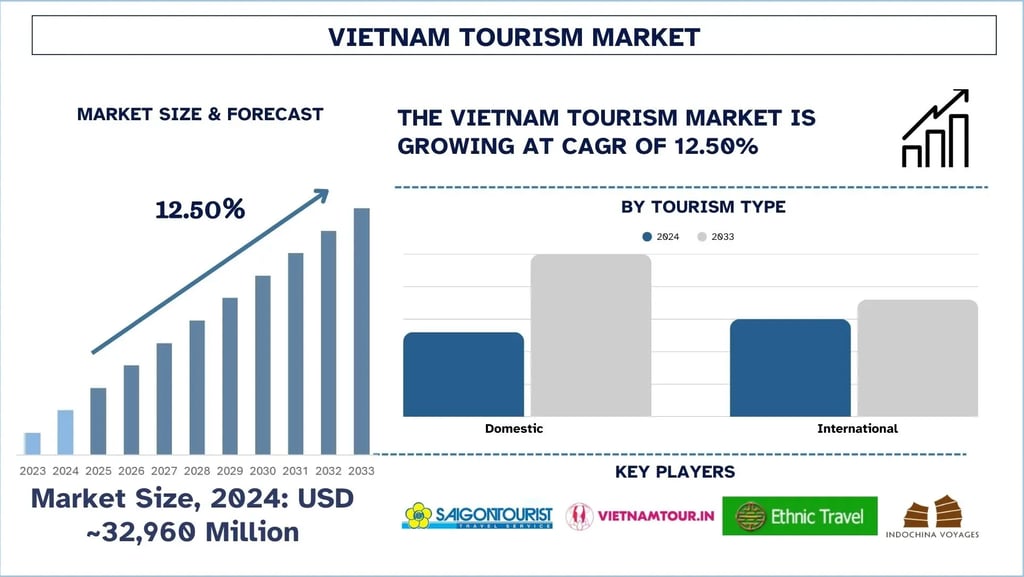

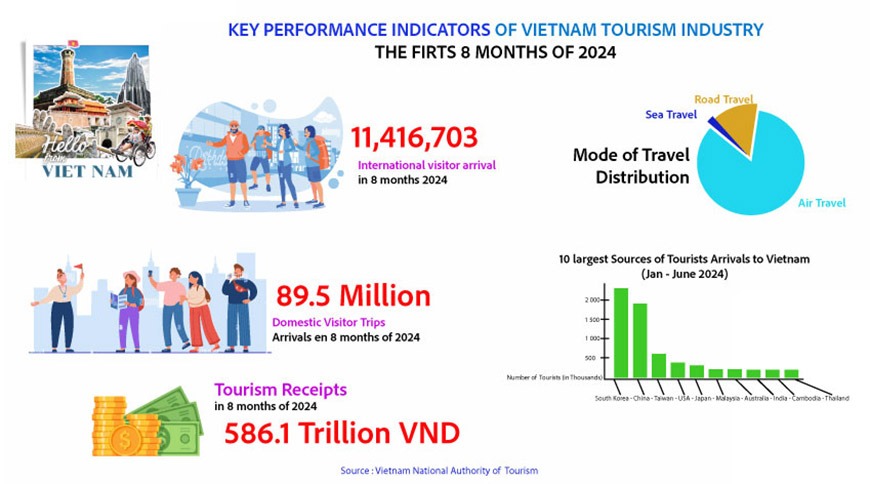

Opportunities for Growth and Investment
With targets of 25 million international visitors in 2025, digital strategies are essential for capturing this influx. Opportunities abound in bleisure travel, where tech blends business and leisure, and in green transformation for sustainable tourism. FDI in accommodation reached US$13.63 million in January 2025, signaling investor confidence.
BDP+Partners recommends integrated solutions like AI platforms for personalization and IoT for efficiency, aligning with Vietnam's goal to become Asia's next travel powerhouse through tech. Event tourism, boosted by digital tools, could grow the sector to over 1.7 trillion USD by integrating heritage with technology.
Future Projections and Strategic Recommendations
Projections indicate continued acceleration in digital adoption through 2030, with the digital economy reaching $90-200 billion. By 2045, tourism aims for 35-40 million arrivals, driven by smart ecosystems. Recommendations include investing in AI for cost-cutting and efficiency, adopting AR/VR for marketing, and partnering for infrastructure upgrades.
In Ho Chi Minh City, digital tools like VR e-commerce and smart apps will sustain growth, setting standards for global travel. BDP+Partners advises a holistic approach: assess current tech, pilot innovations, and train staff for seamless integration.
In summary, digital transformation is not just a trend but a necessity for Vietnam's hospitality in 2025. By leveraging AI, robotics, and immersive tech, businesses can achieve operational excellence and sustainable growth. Reach out to BDP+Partners today to transform your hospitality venture with tailored, innovative strategies.
